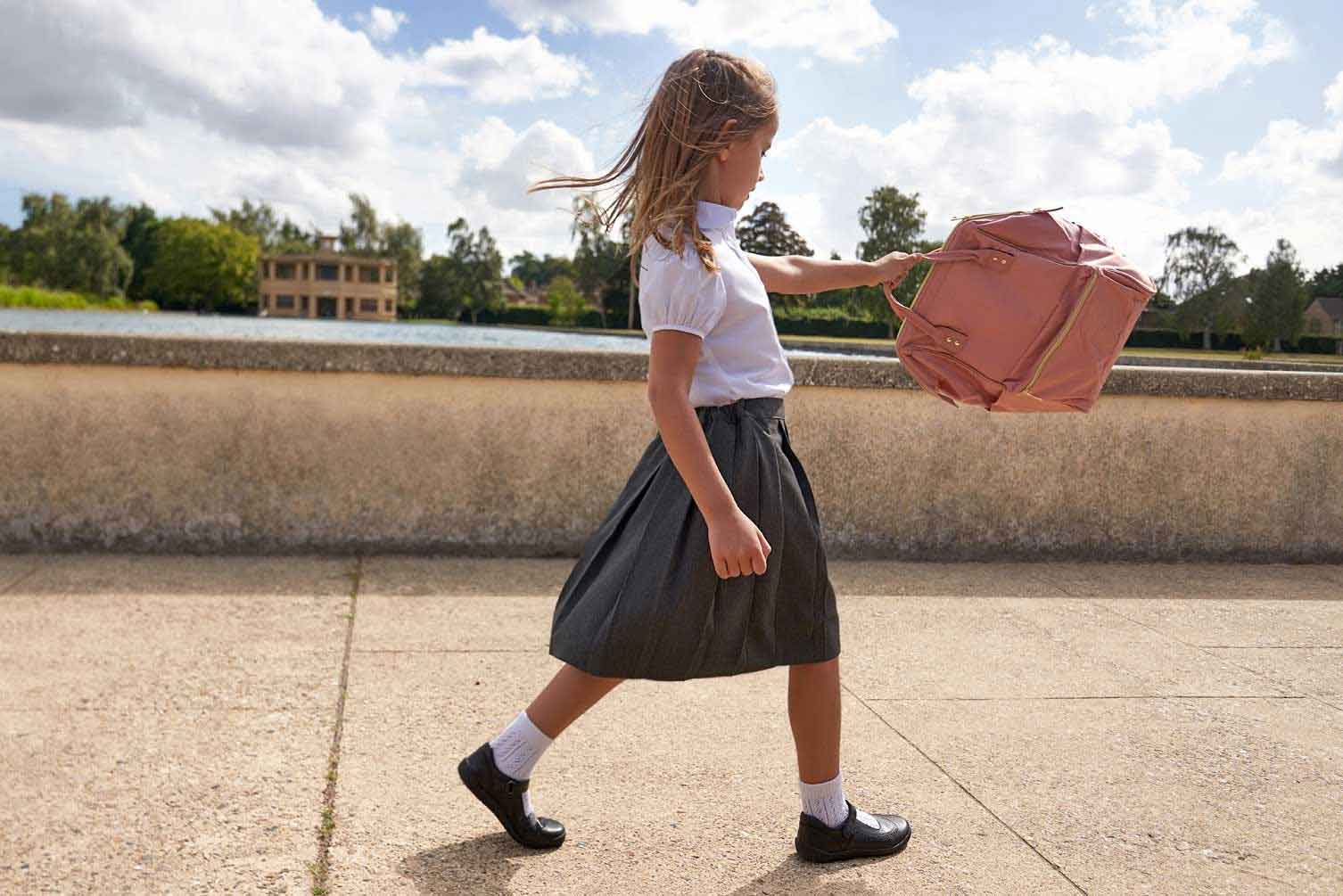
Going back to school at the end of the summer holidays can mean a great big to-do list. Preparing for the return to school involves many things, from buying new school shoes to easing into an earlier bedtime before the first day back. One thing that is often overlooked, though, is the emotional side of going back to school.
After six weeks of sunshine and oodles of free time, it can be hard to transition back into a regular term-time routine. That’s why we’ve worked with Dr Julie Smith, a Clinical Psychologist and expert in mental health, to offer advice on how to manage the transition back to school for both children and parents.
Here we provide some helpful tips on how to spot behaviours that might show your child is anxious, but not sharing their concerns and how to help them with their feelings. We’ll also give you some top tips of our own on how to ease back to school anxiety for parents and pupils alike.
1. Make time. Find at least 10 minutes each day to check in with your child one on one so you can talk about things they may not want to share with the whole family.
2. Validate their feelings. If your child expresses anxiety about returning to school, be sure to let them know, first and foremost, that you’re listening. Try not to dismiss their feelings or imply that they shouldn’t be feeling this way. Remember, it’s natural to be anxious before a big change.
3. Normalise. Explain that lots of children will be having similar feelings ahead of the return to school, and help your child to understand that it is understandable and normal to feel this way. You might even share a time when you were similarly nervous.
4. Know that the feeling is temporary. It’s normal to be anxious before a change, but as your child gets into the swing of the new school year, they’ll likely lose those feelings of trepidation. If possible, remind them of a time they were nervous before, and how they felt after getting used to the new normal.
5. Help them find a focus. In times of anxiety, it can be helpful to feel confident and in control. Help your child to do this by walking them through what they’ll need to do. For example, explain how to answer the register, how to introduce themself, how to call a teacher over.
6. Reassurance. If your child has specific anxieties, such as not making friends or not doing well in lessons, try to reassure them. Remind them that their old friends used to be strangers before they got to know one another, and assure them that you’ll support them with anything they find difficult.
7. Be prepared. Having to rush around in the morning before school makes tensions rise and anxieties build, so make sure to allow extra time so things can run smoothly. If possible, try to prepare lunches and school bags ahead of time so you have fewer things to do in the morning.
Watching your little one head through the school gates can be a nerve-wracking experience, whether it’s their very first day at high school or primary, or they’re moving up into the next year group. As a parent, you can easily get lost in all sorts of worries - will they make friends, will they do well in their classes, will they enjoy themselves? And while these worries are perfectly natural, they can get in the way of what can also be a very exciting time for both you and your child.
So how can parents reduce their back to school anxieties?
1. Distract yourself. One of the biggest sources of anxiety after a child goes back to school is that transition from being with your child all day long to only seeing them outside of school hours. Filling your time with other things, whether that’s work, meeting up with friends or running errands, can help to keep you distracted and fend off worries.
2. Speak to other parents. A problem shared is a problem halved, they say, and speaking with other parents can help to alleviate your own anxieties. Not only can you share experience and anecdotes, but you can also foster relationships that could lead to playdates for your children outside of school.
3. Concentrate on the positives. It can be all too easy to think about the downsides to your child’s return to school, which makes it even more important to remember the benefits. Your child will have the opportunity to broaden their mind, develop mentally, emotionally and socially, plus make lots of new friends!
Many of the points listed above can also be very helpful in relieving children’s stress and anxiety about going back to school, or going to school for the first time if that is the case. Here, we’ve listed some tips just for helping your child adjust to the transition.
1. Refer back to past experiences. If you can, try to remind your child of a previous time where they were anxious about something new, such as previous first days - of school or nursery, for example. If they’ve never had a first day, you could try first times such as their first time learning to ride a bike.
2. Involve them in decision-marking where appropriate. Allowing your child to help with making choices such as which school shoes to get or which stationery they’d like to take with them can help them to feel more confident and in control ahead of the first day.
3. Help them to focus on what is familiar Encourage your child to think about friends that will be starting the school year with them to help them realise that not everything is brand new and daunting. It’s also a good idea to familiarise them with their new teacher or, if it’s a new school, the route to and from home.
Author: Click Consult, published 22-06-2023.